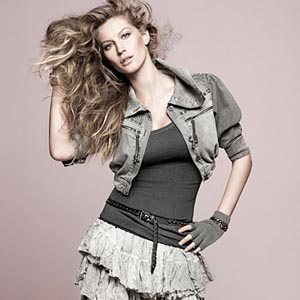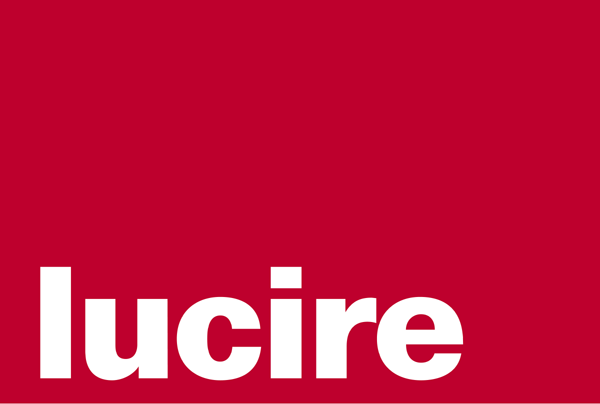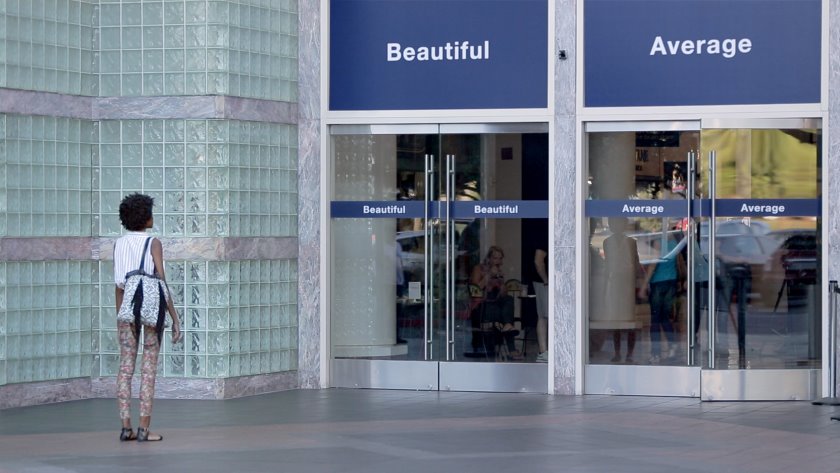In its quest to become a brand associated with more than a bar of soap, Dove has launched an enviable feel-good campaign that seeks to remake the way women feel about beauty advertising. Dove ads challenge the domination of thin, pouty-lipped supermodels in beauty advertising. When critics claim the ads are simply good for the bottom line, Dove rolls out the press releases. Dove claims it’s “walking its talk” by reaching out to millions of women, young and old, through its Self Esteem Fund, Uniquely ME!, the Girl Scout–Dove Self-Esteem programme, and Step Up Women’s Network, a Hollywood-based non-profit organization. All of these causes serve women in fantastic ways and are certainly worthy of support.
That’s great for Dove, but what Unilever?
Unilever, Dove’s parent company, also makes Axe, whose ads feature scantily clad, thin women who are the very stereotype Dove is trying not to portray. The ad is geared for men, but the message is clear to women in the audience. ‘This is the picture of attractiveness.’
Dove may be claiming to raise the standard but they’re still selling thigh cream. Unilever’s answer to critics who raised questions regarding Axe ads was simply that the ads were meant to be a spoof and the target audience for those ads is, of course, men. That’s well and good, but women actually buy the majority of men’s fragrances.
Dove’s parent company also makes one of most controversial skin lightening creams on the international market, Fair & Lovely. Unilever’s true colours aren’t “like a rainbow” where it only pays to be “fair” to be lovely. Unilever’s ads for the product were called ‘an affront to women’s dignity’ by Brinda Karat, general secretary of the Women’s Association, in a memo to India’s National Human Rights’ Commission.
 And then there’s Naomi Wolf …
And then there’s Naomi Wolf …
Thanks to Naomi Wolf (pictured at left), Dove’s Campaign for Real Beauty has even more credibility it might not deserve. I read The Beauty Myth several years ago and had to wonder why Naomi Wolf would align herself with Dove’s cause, even with Dove’s claim of building self-esteem in young women through charity partnerships.
Business is business, as they say, and business is good.
There’s a partnership between the Woodhull Institute (which Wolf co-founded) and Dove that’s bringing admittedly outstanding educational resources for free to women all over the country (and the world via the web). Of course, this is possible in large part because Dove is pumping a significant amount of money into the institution allowing Woodhull to do much more than it might have been able to before. There are 16 pieces of education on the website made available through Dove’s partnership with Woodhull Institute.
This comes from Woodhull’s site: ‘Thanks to the sponsorship of Dove, Woodhull developed video mini editions of several of our modules. They are being broadcast to women throughout the world. They can be accessed through www.campaignforrealbeauty.com and are currently housed in the workshop section of the web site. We encourage all of you to learn, view and share them with everyone that you know. Dove’s sponsorship has allowed us to bring our program onto college campuses.’
If there is a cheque involved, can Wolf be credible? To go from writing The Beauty Myth to touring with Dove and singing its praises is a big jump. Could she be far more clever than all that and be spreading her message about the true hypocrisy of the beauty industry, all on Dove’s dime? Savvy audience members would certainly catch the irony, and Dove can laugh all the way to the bank. Everybody wins.
Dove’s Campaign for Real Beauty cause is valid. We need to take ownership of our self-image, our beauty and our self-worth and take back what the media try to take from us. At least Dove is doing some things right by listening to women. They are widening the images of women used in advertising and hopefully broadening the idea of ‘beautiful’. If that spreads to more products and more companies then it will be a wonderful thing.
Let’s just keep it honest. Dove is still selling soap and thigh cream, and they’re selling a lot of it thanks to this campaign. Buy Dove products if they work well for you. Beyond that, their marketing campaign is just that—marketing. If everyone’s winning in this deal, let’s make sure the consumer is still getting the best deal of all: the truth.—M. K. Johnson
M. K. Johnson served as the first beauty editor of Lucire.








Naomi is the real beauty! hubba hubba.
Dove’s products are decent, but am I the only one who is put off by this marketing campaign?